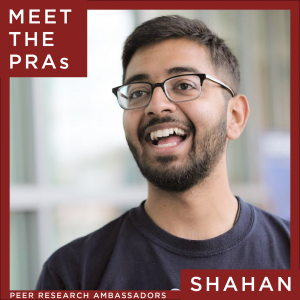Meet Brendan Hogan ’21 (CLAS), an OUR Peer Research Ambassador (PRA) majoring in Political Science and Psychology.
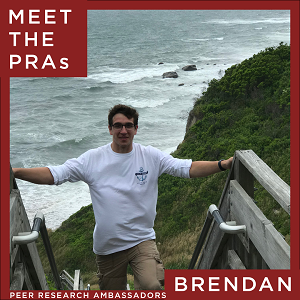
What is the focus of your research/creative activity?
As of right now, I have participated in research that revolves around the influence of intellectual humility upon public discourse. Essentially, when someone engages in a conversation with another person over a political issue in today’s political climate, the conversation tends to go into one of two directions. When a conversation begins, it can either end with both parties either agreeing or both parties disagreeing. When both parties disagree over a topic, a hostile conversation usually is created where both sides become angry and attempt to force their opinion on the other. Thus, the researchers I have worked with have been trying to create a third outcome where parties can instead agree to disagree. With this, both sides are able to acknowledge the facts of the other side and ultimately end the conversation with a humble realization that we are all trying together to find a solution. Thus, it creates this idea that we are all attempting to solve the issues of today and should work together as a society to compromise.
In the future, I hopefully will be able to carry out a research project where I can intertwine my love for photography with political science and human rights. I may look towards the area of political journalism to find a more solidified direction for my project.
Why did you get involved in research/creative activity?
When I was provided this opportunity to carry out research, I saw it as a chance to become exposed to a real life research project. From the opportunity, I hoped that I would be able to take what I learned and then carry out my own project. While the research experiment is an important aspect of the project, it was also pertinent that I became accustomed to the behind-the-scenes management and organization of a project.
In addition, I took the research opportunity as I felt a desire to understand this area of political science and attempt to figure out how researchers are trying to solve the political polarization of today. Without this desire to take part in this specific research project, I would not have gotten involved as the work that I conducted and research that I carried out would not have been enjoyable.
What advice would you give to incoming freshmen?
When you are jumping into college, it is easy to sign up for and commit to many extracurricular activities. If I could give you any advice, it would be to try to find a few things that you love the most and stay committed to those activities throughout your undergraduate years. Work to improve those clubs, positions, and opportunities, but also look to find a balance between your own personal life and college career. The next few years will be some of the most enjoyable years of your life, so don’t forget to take the time to not only build your resume, but to grow as an individual and find yourself. If you can do this, you will be able to graduate with an idea of what is important to you and what you want to do after your time at UConn.
Describe the impact your research experience/creative activity has had on you.
After I finished my research, I found that I have begun to approach arguments from the perspectives of both sides. This concept of intellectual humility has really shed light on the issue of political polarization for me and has shown me that it is important to work towards compromises. With this real world application of research, this experience has left a lasting impact on my outlook in my everyday interactions with others.
What are your plans after graduation? How has involvement in research/creative activity influenced your plans and/or prepared you for the future?
After I graduate, I hope to go to law school and eventually practice law in Connecticut or New York. From this research, it has inspired me to take on a neutral stance in debates and conversations so that the facts of the argument can first be examined. From there, it has shown to me that no one side is necessarily right, but rather both sides should meet in the middle and overcome this political divide. Without people attempting to reach a middle ground, our polarized political climate will only worsen in the future. Thus, as this research was applicable to my area of study, I have found that it has allowed me to grow as a political scientist, a potential lawyer, and as an individual.
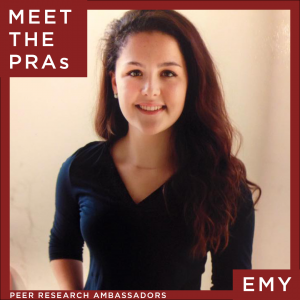
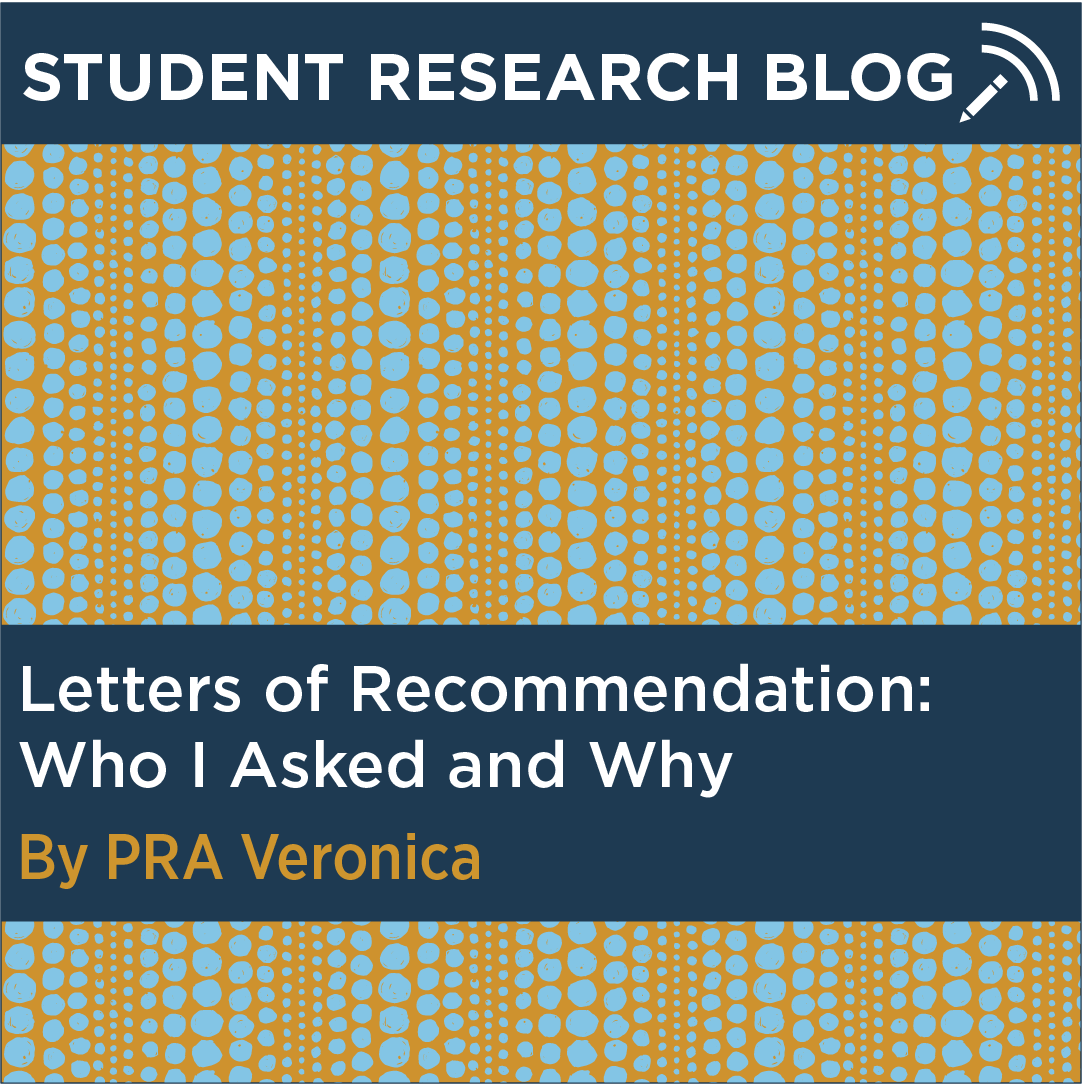 If you’re a senior, chances are you’re considering either graduate school or full time employment after graduation. If you chose the former, then you probably need a few letters of recommendation for your applications. Who do you ask? How do you form relationships with faculty who can write you letters of recommendation?
If you’re a senior, chances are you’re considering either graduate school or full time employment after graduation. If you chose the former, then you probably need a few letters of recommendation for your applications. Who do you ask? How do you form relationships with faculty who can write you letters of recommendation?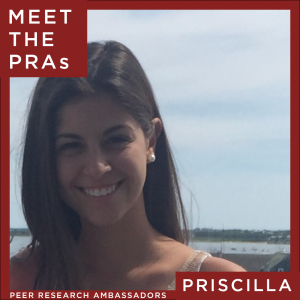
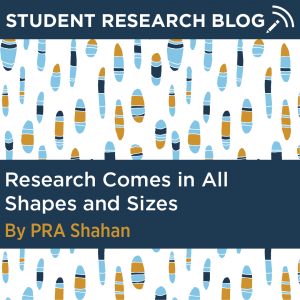 Research happens in a lab, on a bench, with a bunch of microscopes and pipettes and bottles of various liquids on the side. Right? Sounds right to me…or at least it did. Research is so much more than that. It just might take a while before you realize that.
Research happens in a lab, on a bench, with a bunch of microscopes and pipettes and bottles of various liquids on the side. Right? Sounds right to me…or at least it did. Research is so much more than that. It just might take a while before you realize that.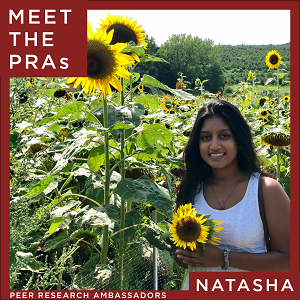
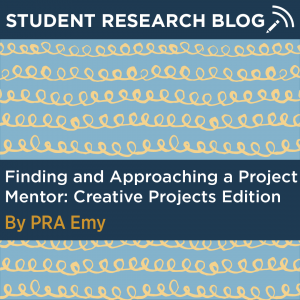 When I decided to apply for an IDEA grant, one step in the process really intimidated me. That step was approaching a project mentor. In creative endeavors, finding and approaching a project mentor works a little differently than in research. While there are no publications to read or labs to shadow in, there are artist statements, studio practices, and past work to learn about. These tips can help you select the right mentor, prepare for your first meeting, and ensure that you forge a relationship that will best serve your creative endeavors.
When I decided to apply for an IDEA grant, one step in the process really intimidated me. That step was approaching a project mentor. In creative endeavors, finding and approaching a project mentor works a little differently than in research. While there are no publications to read or labs to shadow in, there are artist statements, studio practices, and past work to learn about. These tips can help you select the right mentor, prepare for your first meeting, and ensure that you forge a relationship that will best serve your creative endeavors. 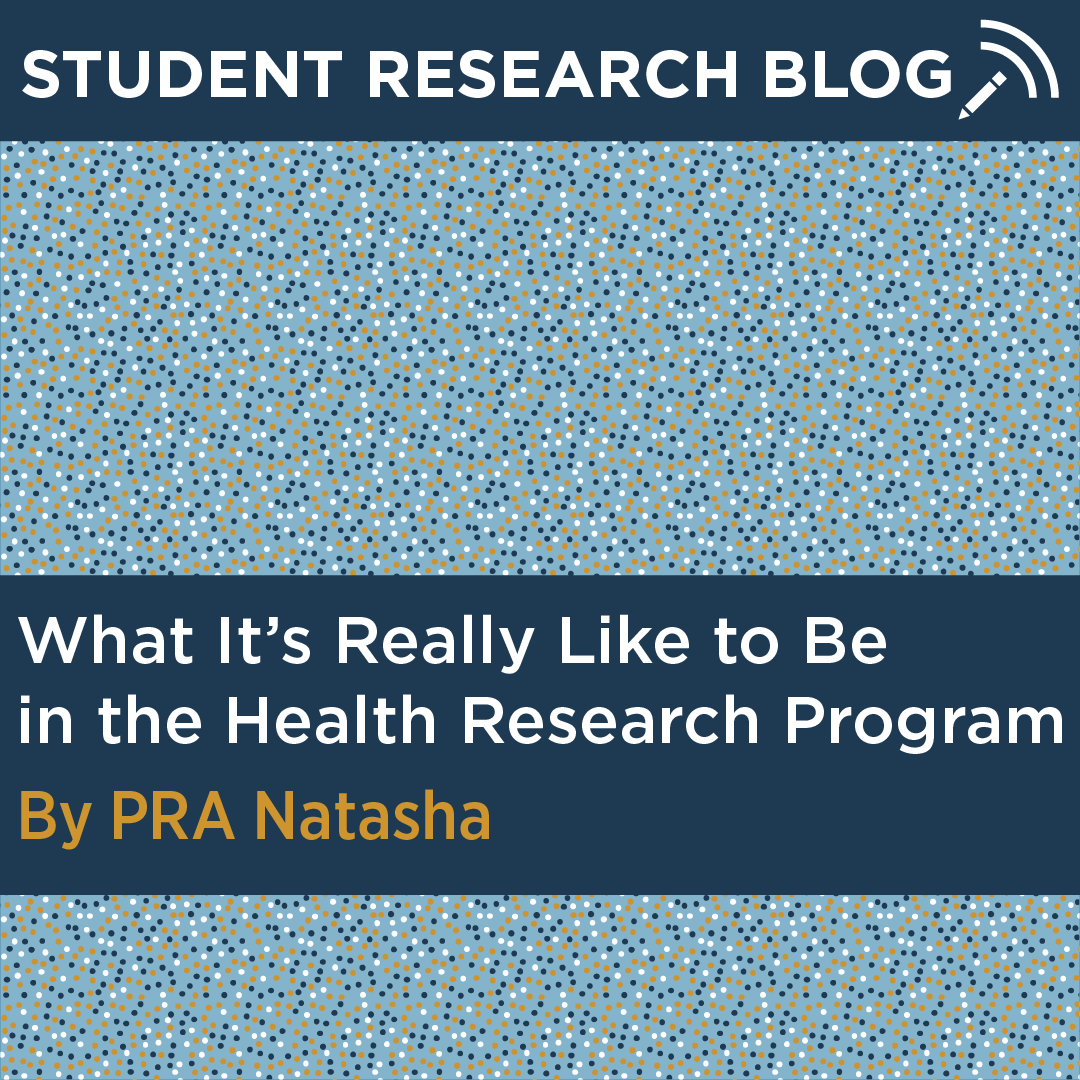 Are you interested in the
Are you interested in the 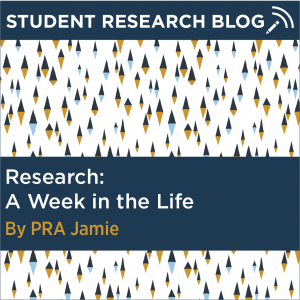 The idea of “doing research” sounds so vague and pretty daunting as an undergraduate student. For people in the sciences, we usually picture a person in a white coat with a beaker doing… something. As a freshman, I wasn’t sure what those people in lab coats were actually doing. I assumed it was important but really didn’t understand it.
The idea of “doing research” sounds so vague and pretty daunting as an undergraduate student. For people in the sciences, we usually picture a person in a white coat with a beaker doing… something. As a freshman, I wasn’t sure what those people in lab coats were actually doing. I assumed it was important but really didn’t understand it.
